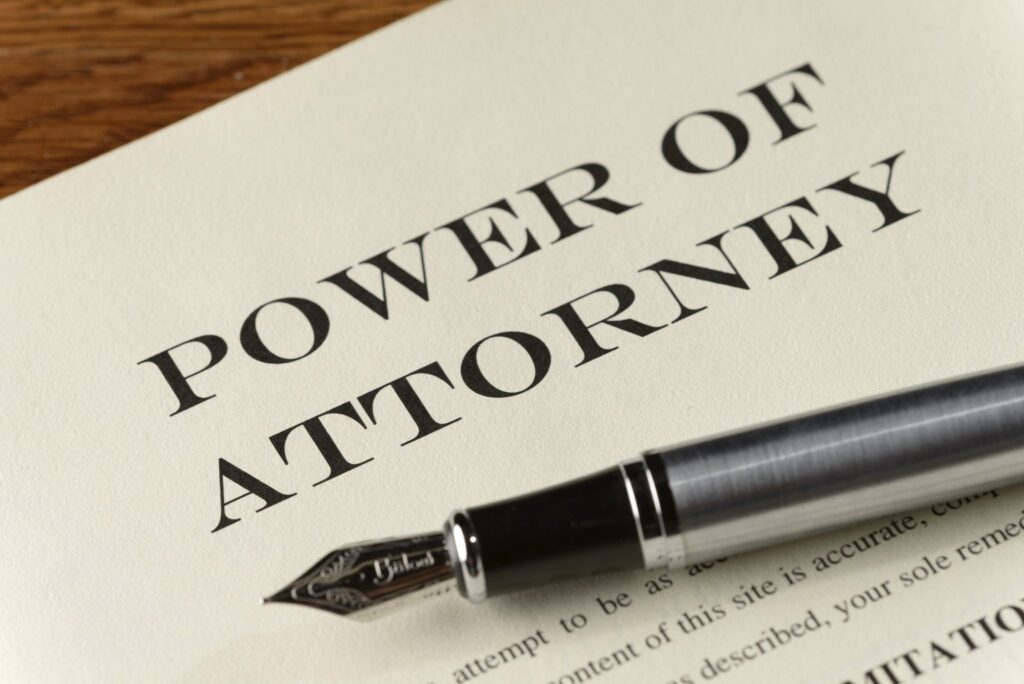In short, a Power of Attorney (PoA) is a crucial legal tool that lets you appoint someone you trust to make decisions on your behalf. You must already know that – but is there someone who can override a Power of Attorney, after all?
Given how this document can cover financial matters, healthcare choices, both, or even more depending on how it’s set up, understanding the ins and outs of PoA is key, especially when it comes to knowing who can step in and change or cancel this arrangement.
Why does knowing this matter? Well, you can never predict what tomorrow will be like. Situations change, relationships evolve, and sometimes the person you once trusted with your affairs might not be the best choice anymore. That’s why it’s vital to understand not only how a PoA works, but also the circumstances under which it can be overridden or revoked.
So, in this article, you’ll learn about who can override a Power of Attorney, how such a document works, and its limitations.
It might also interest you: Can a notary verify an I-9 form?
Who can override a Power of Attorney?

Now, let’s dive into the heart of the matter: who exactly has the authority to override a PoA? While it’s not as straightforward as you might think, there are a few key players to consider.
First and foremost, you – the principal – have the power to override your own Power of Attorney. As long as you’re mentally competent, you can change or revoke this document at any time. It’s your decision, after all, and you remain in control.
Courts can also step in to override a power of attorney. This typically happens if there’s evidence of abuse or mismanagement by the agent (the person you’ve appointed). If someone believes your agent is making decisions that aren’t in your best interest, they can petition the court to intervene.
In some cases, other authorized individuals could override a Power of Attorney. For example, if you become incapacitated and the court appoints a guardian or conservator, they may have the authority to revoke or modify your existing PoA.
It’s important to note that family members can’t automatically override your Power of Attorney just because they disagree with the agent’s decisions. Your spouse, children, or siblings don’t have an inherent right to change the document you’ve put in place.
Remember, the specific rules can vary depending on your state’s laws and the type of power of attorney you have. That’s why it’s crucial to work with a legal professional when setting up or modifying your PoA to ensure it aligns with your wishes and complies with local regulations.
General Power of Attorney rules

As we mentioned, the specific rules can vary based on the type of power of attorney you have. Let’s briefly explore the five main types and how they generally work:
- General Power of Attorney: this gives your agent broad powers to handle your financial and legal affairs;
- Limited Power of Attorney: this restricts your agent’s power to specific tasks or periods;
- Durable Power of Attorney: this remains in effect even if you become incapacitated;
- Springing Power of Attorney: this only takes effect under specific circumstances, usually when you become incapacitated;
- Medical Power of Attorney: this allows your agent to make healthcare decisions for you if you’re unable to do so.
Regardless of the type, a Power of Attorney document outlines the specific authority granted to your agent. It’s crucial to follow these terms to the letter. Your agent has a fiduciary duty to act in your best interests and make decisions that align with your wishes.
To reiterate, the principal (you) can typically revoke a PoA at any time, as long as you’re mentally competent. However, if you become incapacitated, a durable power of attorney remains in effect unless challenged in court.
How does Power of Attorney work in Florida?
Now, let’s focus on how power of attorney works in the Sunshine State. Florida has its own set of laws and regulations governing these important documents.
In Florida, power of attorney is primarily governed by Chapter 709 of the Florida Statutes. Section 709.2201 is notorious as it outlines the agent’s authority under a PoA.
Florida law requires that a Power of Attorney be signed by the principal and by two subscribing witnesses. It must also be acknowledged by a notary public to be considered valid. This is stricter than some other states, which might only require the principal’s signature.
On terminating or revoking a power of attorney in Florida, you have the following options:
- You can execute a new PoA that explicitly revokes the previous one;
- You can create a separate written document stating your intention to revoke the PoA;
- A court can revoke or suspend the PoA if it finds that the agent has violated their fiduciary duty.
It’s worth noting that, in Florida, a power of attorney is automatically terminated if the principal dies (unless the document explicitly states otherwise for specific purposes).
Florida law also provides strong protections for principals. For instance, an agent cannot change a principal’s will or living trust, cannot make gifts of the principal’s property unless explicitly authorized, and cannot designate themselves as a beneficiary of the principal’s assets unless specifically permitted in the document.
Knowing these Florida-specific rules is crucial for anyone creating or acting under a Power of Attorney in the state. As always, consulting with a local legal professional can help ensure you’re fully compliant with state law.
Limits on the agent’s authority

While a Power of Attorney grants significant authority to an agent, one must understand that this power has limits. There are important restrictions on what an agent can do, even with a comprehensive Power of Attorney document.
In Florida, as in many states, an agent under a Power of Attorney cannot:
- Vote in public elections on behalf of the principal;
- Execute or revoke a will for the principal;
- Make, amend, or revoke the principal’s living will;
- Make health care decisions for the principal unless specifically authorized in a Medical Power of Attorney.
Additionally, unless explicitly stated in the Power of Attorney document, an agent typically cannot:
- Make gifts of the principal’s property;
- Create, amend, or terminate a trust for the principal;
- Designate or change beneficiaries on the principal’s accounts or insurance policies.
Always remember: the specific limits on an agent’s authority can vary based on the type of Power of Attorney and how it’s written. That’s why it’s crucial to work with a legal professional when creating or modifying a Power of Attorney to ensure it accurately reflects your wishes and intentions.

Who can override a Power of Attorney? Conclusion
The legal competence to override a Power of Attorney lies with specific individuals – and understanding these limitations is crucial for both principals and agents. A PoA is a powerful legal tool but it’s not absolute or unchangeable.
As you saw in our article, principals retain the right to revoke or modify it, courts can intervene in cases of misuse, and agents face inherent limits to their authority.
If you’re creating a Power of Attorney, acting as an agent, or considering challenging someone’s Power of Attorney, you must understand these rules and limitations. Each situation is unique, and the specifics of every Power of Attorney document carry significant weight.
For those in Central Florida who need notarization services for their Power of Attorney documents or any other legal papers, Mobile Notary Orlando is ready to assist.
We provide convenient, reliable mobile notarization services across Orange, Seminole, Osceola, and Brevard counties. Our experienced notaries will come to your location to ensure your documents are properly executed and notarized.
We’re available 24/7 and strive to make the process as quick and hassle-free as possible. Get in touch with us to schedule an appointment on your terms!






